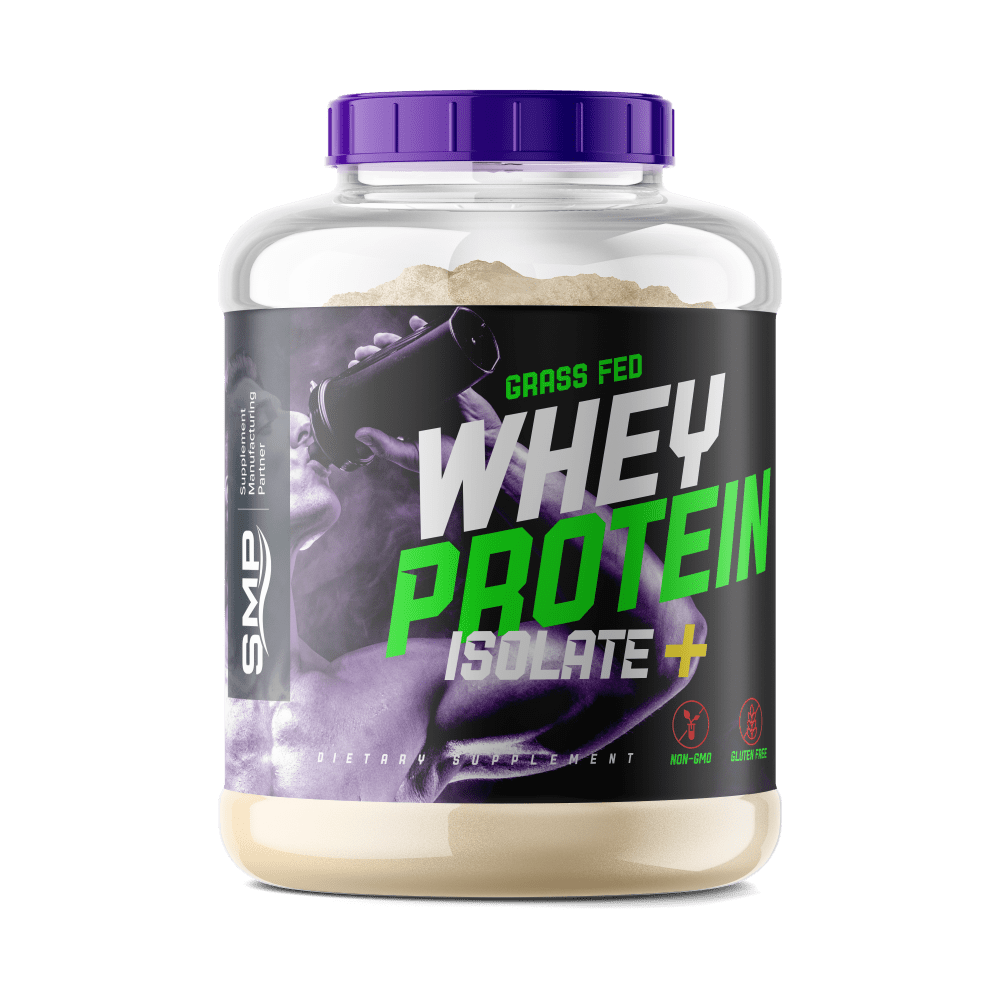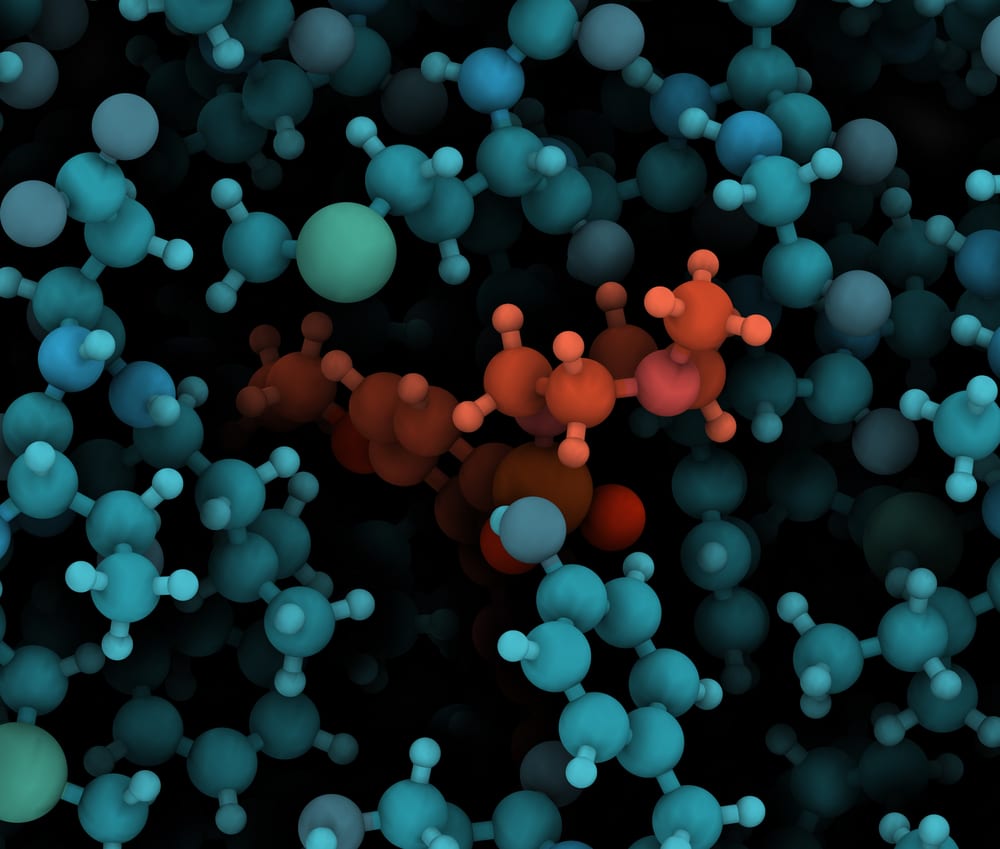
With the busy day to day life for millions of people, it’s becoming increasingly challenging for people to maintain an optimal nutritional intake. For the forecast period ending 2024, the global vitamin supplements market is expected to grow at an impressive CAGR of 8.44% (1). E-commerce has played a vital role in this surge as it is estimated that 60% of US consumers refer to the internet for health-related information and buying decisions. That is why we took a look at a great debate: amino acids vs protein.
Protein and amino acid supplements are one of the most popular nutraceutical products, particularly among fitness enthusiasts. However, there is a misconception that the two are the same. They are complementary yet possess unique traits from each other and have various benefits as well.
Through this article, we will have an in-depth analysis of proteins and amino acids and the difference between the two.
First, let’s get started with what exactly is amino acids and proteins
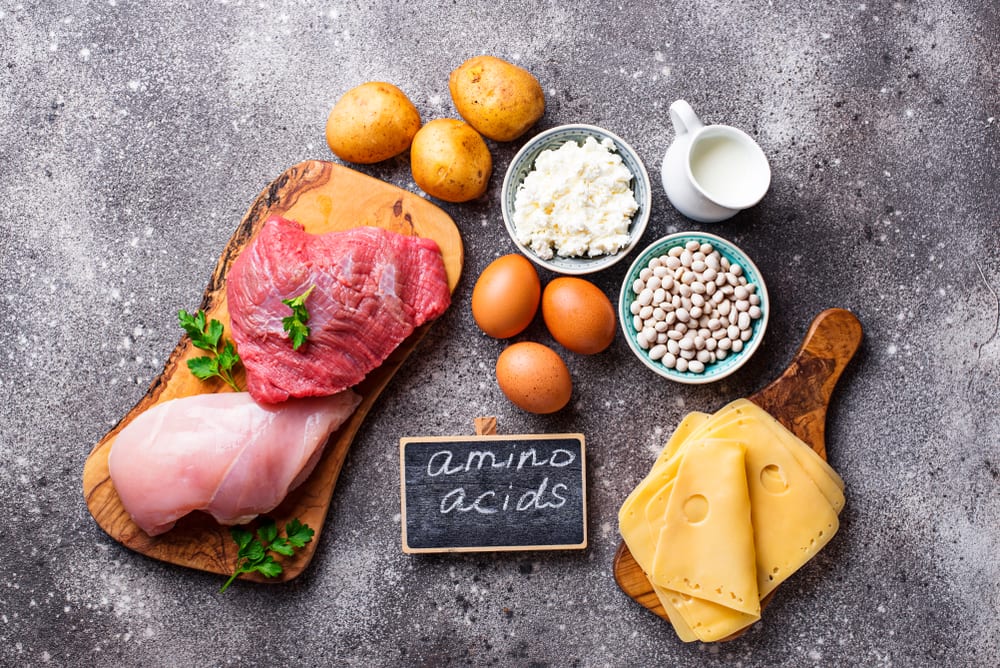
Amino Acids: What are They?
They are compounds that combine to produce proteins. When you consume food consisting of proteins, your digestive system disintegrates the protein into amino acids. After that, the amino acids are combined in diverse ways to accomplish bodily functions. For optimal health and functioning, your body requires 20 different amino acids. Nine of these acids, known as essential amino acids, must be obtained through food. Dairy, quinoa, buckwheat, soy, tofu, eggs, and meat are good dietary sources of amino acids (2).
The remaining 11 amino acids can be manufactured by the human body, so they generally don’t require to be supplemented through diet. Amino acids have various benefits such as building muscles, preventing illness, transporting nutrients, cause bodily chemical reactions, among other functions. If you suffer from an amino acid deficiency, you can experience a wide range of ailments.
Types Of Essential Amino Acids
Essential amino acids are available in various forms such as:
Tryptophan
This precursor of melatonin and serotonin is essential for a vital development in infants. It is often used in sleep aid supplements.
Phenylalanine
They assist the body in using enzymes, proteins, and other amino acids. A deficiency in phenylalanine is very rare, but it can lead to memory problems, fatigue, and eczema.
Leucine
Leucine is used in the biosynthesis of proteins. It helps with the development and repair of bones and muscles and aid in managing blood sugar levels. Leucine deficiency can cause fatigue, hair loss, and skin rashes.
Isoleucine
Isoleucine aids with hormone production, blood sugar regulation, immunity, and wound healing. Deficiency can lead to muscle wasting and shaking.
Valine
Valine is critical for emotional calm, muscle coordination, and mental focus. Valine supplements can help with boosting energy, tissue repair, and muscle growth. Deficiency can lead to low mental function and insomnia.
Methionine
Methionine is essential for the flexibility and health of hair and skin. It encourages the optimal absorption of zinc and selenium and the elimination of heavy metals such as mercury and lead.
Threonine
It is a component in elastin, collage, and teeth enamel and is essential for healthy teeth and skin. It can help people suffering from mild depression, anxiety, and indigestion.
Histidine
Histidine encourages tissue repair, growth, and the creation of blood cells. Histidine supplements can be useful for insulin resistance and lowering BMI. Deficiency can lead to anemia.
Lysine
It is essential for building muscle, encouraging recovery from surgery or injury, maintaining bone strength, and regulating enzymes, antibodies, and hormones. Lysines also contain anti-viral properties.
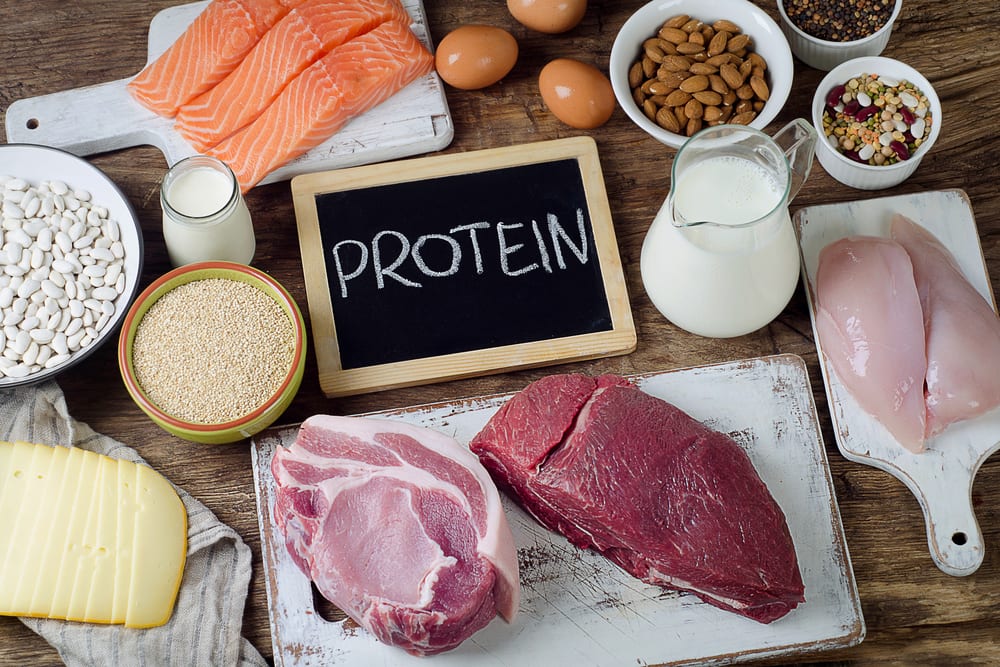
Proteins: What Are They?
They consist of huge molecules that our body cells require to function optimally. They are made up of amino acids. Proteins determine our body’s structure and function. In the absence of proteins, regulation of the body’s tissue, cells, and organs cannot take place (3). Bones, skins, and muscles possess a considerable amount of protein, such as antibodies, hormones, and enzymes. They also function as neurotransmitters. They are long chains of amino acids that structure the basis of all living beings.
The human body is made up of about 100 trillion cells, and every cell consists of thousands of various proteins, and together, they compel every cell to function properly.
Types Of Protein
Proteins can be segmented into three forms:
Incomplete
It refers to food that lacks protein balance and possesses at least one amino acid. Plant foods like grains, beans, peas generally contain incomplete protein.
Complete
These food items possess all the essential amino acids. Generally, animal products such as eggs, dairy, and meat possess complete proteins.
Complementary
It consists of two or more food items made up of incomplete proteins that can be combined to produce a complete protein. Bread with peanut butter and rice and beans are examples of complementary proteins (4).
What Do Proteins Do?
The function of proteins differs widely, and they play a role in almost every biological process. Their primary purpose is to strengthen, build, and replace or repair things like tissues.
Proteins can be:
- Enzymes like amylase
- Carriers like hemoglobin
- Hormonal like insulin
- Structural like collagen
If you’re suffering from protein deficiency, you may suffer from the following:
- Loss of muscle mass
- Skin lesions
- Brittle and thin hair
- Edema
- Weak muscle tone
Among children, protein deficiency can lead to stunted growth and other conditions (5).
It becomes evident that amino acids and proteins are indispensable for the optimal functioning of the human body. They are complementary and work together; however, there are some differences between the two.
Now that we’re familiar with the concepts of protein and amino acids let’s dive into how they are distinct from one another.
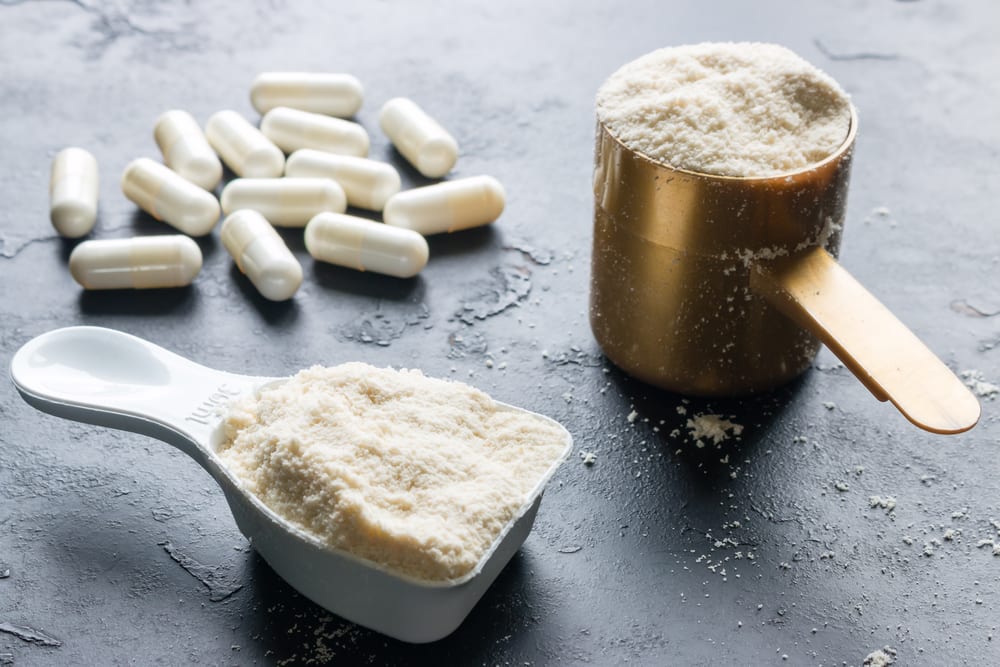
Protein Vs. Amino Acids; How Are They Different?
Amino acids and proteins are intimately linked; however, they’re not entirely the same thing. Amino acids are peptides, and they’re tiny subunits formed from oxygen, hydrogen, carbon, and other compounds. On the other hand, proteins are polypeptides, and they’re a chain of amino acids connected, possessing thousands of amino acids.
The human body has the power to disintegrate proteins into amino acids as well as restructuring them into proteins. Both procedures are essential for your health. When they connect together to form a protein, the amino acid’s individual structure and the way they interact with other nearby amino acids decide the ultimate role of the protein (6). They influence the function of proteins; however, the proteins may not directly affect amino acids.
Amino Acid and Protein Synthesis
When your body cells receive a message, these cells start the procedure of protein synthesis. Through information present in your genetic substance, your cell’s protein-building system pulls in amino acids from your dietary protein. After that, they are assembled in a particular order to generate the protein you require at the moment (7). As such, your body’s protein depends on the essential amino acids to develop into the perfectly functional molecules your body requires for good health.
Putting it simply, proteins are essential nutrients that your body needs for building muscle tissue along with other tissue such as hair and skin. Poultry, fish, meat along with plant sources like nuts, legumes, and soy are the primary sources of protein. The protein we consume gets disintegrated into amino acids. On the other hand, amino acids are the units that build protein.
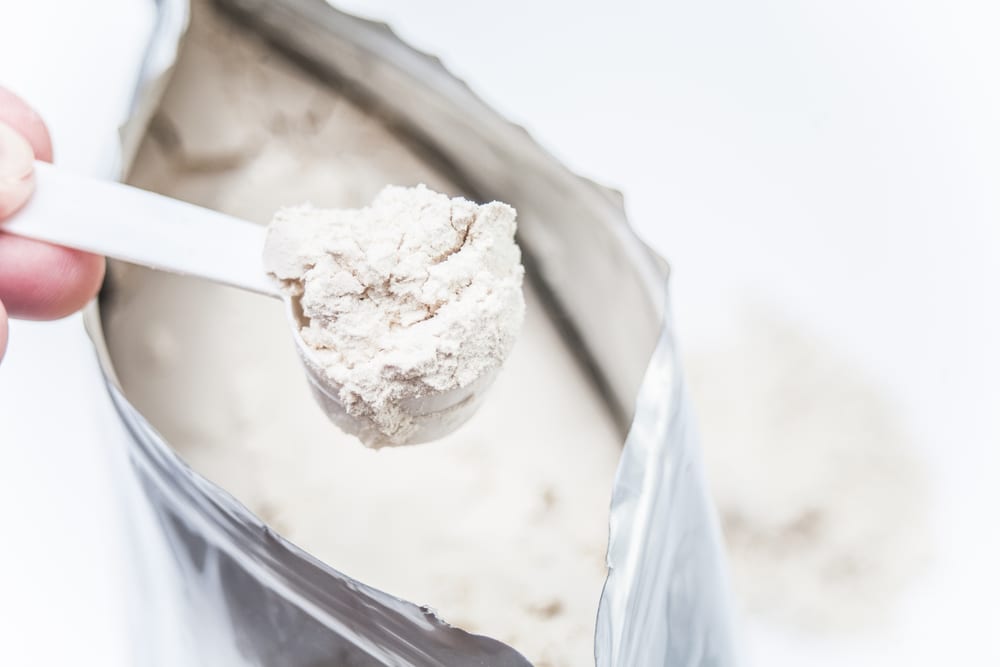
Protein Vs. Amino Acids: Which One Is Better for Muscle Development?
Now that you’re aware of the difference between proteins and amino acids, you might be wondering which one you must take to encourage your muscle growth. As protein is disintegrated into amino acids, both are similar in terms of muscle development. It’s not possible to receive single amino acids just from the food you consume. You’ll have to consume foods rich in protein that possess a varying quantity of every amino acid.
For muscle growth, both can be very advantageous. However, because of processing needs, amino acid supplements tend to be a little costlier. Additionally, you must feed your body all the essential amino acids for optimal muscle development.
So, Which One Should You Choose?
If you’re a bodybuilder, athlete, have problems with recovery or participate in intense training, you must supplement both proteins and amino acids. Your nutrition and diet also play a critical role in determining your choice. Take into consideration when and the amount of protein you’re getting.
However, if you get to choose only one, you should opt for protein supplements. It provides the full benefits of amino acids and is also a more affordable option. Compared to blended or single amino acid supplements, your body will absorb proteins quicker. Initially, you should go for an excellent protein powder and then follow it up with a good amino acid supplement.
Bottom Line
Regardless of their difference, amino acid and proteins display a high level of interdependence. If there is no amino acid, there won’t be any proteins. In the absence of dietary protein, all the essential amino acids needed to manufacture proteins will not be accessible by your body. Your body is capable of producing non-essential amino acids; however, essential amino acids are a prerequisite element of your diet as your body doesn’t possess the means to synthesize them. They are both necessary for ideal health, and for a balanced diet, your body requires a daily dose of sufficient protein and a complete addition of all the essential amino acids.
Have Your Protein/Amino Acid Supplement Manufactured by SMP Nutra
When looking for the right private label supplement manufacturer, choosing SMP Nutra is a great decision. We are experts in creating any type of nutraceutical formula, along with offering some of the lowest prices available. We produce some of the highest-quality end products that will ensure your brand stands out from the rest of the competition.
References:
- https://www.marketwatch.com/press-release/vitamin-supplements-worldwide-market-is-estimated-to-grow-at-a-cagr-of-844-during-forecast-to-2024-assets-to-mrfr-2019-10-24
- https://www.healthline.com/nutrition/essential-amino-acids#sources-and-intake
- https://www.michigan.gov/documents/explorelabscience/Introduction_to_proteins_and_amino_acids_571576_7.pdf
- https://www.accessdata.fda.gov/scripts/interactivenutritionfactslabel/protein.html
- https://www.researchgate.net/profile/Salahuddin_Khan8/publication/320372204_Health_complication_caused_by_protein_deficiency/links/59e06dbca6fdcca9842f7401/Health-complication-caused-by-protein-deficiency.pdf
- https://www.ncbi.nlm.nih.gov/books/NBK234922/
- https://www.nigms.nih.gov/education/Booklets/The-Structures-of-Life/Documents/Booklet-The-Structures-of-Life.pdf#page=8


